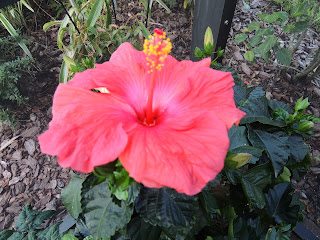This week we're sharing our Top 5 World-Building Tips. Firstly, ditto what Charissa suggested in Sunday's post. Secondly, since I love you, dear readers, I'll add some other tips that I've learned through rejection and correction, aka, the hard way (eyes stories that will never see the light of day...for good reasons).
1. Lead Me Slowly into The Dream: When introducing your world, particularly in fantasy and sci-fi, give the reader something real-world-relatable before rolling out your special crazy. It can be as simple as the scent of fresh bread on a breeze or the clatter of wheels on cobblestones or a pebble in a shoe. It's super tempting to dump all the "how your world is not the real world" right at the beginning because of your excitement to show the reader how amazingly different everything is. Resist. Think of the introduction like greeting a wary puppy. Show them something familiar, then, when they're comfortable, encourage them to follow you. Along the way, toss in an element of Other here and there, feeding them small bits until they're immersed. This is how you avoid info dumping your setting and overwhelming the reader. Once you have the reader's trust, they'll walk around your world with wonder.
2. For All The Suns in the Sky and Moons in the Sea: When creating your environment--as in climate, terrain, etc.-- consider the macro impacts of what you're making. Two moons in your world? How does that affect the tides? Does night last longer than day? How does that affect farming and food supply? What about light sources? Does it rain a lot or are most days clear skies? How does that affect water supply? Rivers? Seas? Transportation? Food supply? Is it windy in your world? Gentle breezes? Gales? How does that affect temperature? Circulation of fresh air? Is illness common because of stagnation? How has fashion adapted to accommodate frequent gusts? How are weapons modified so they don't blow off course?
3. The Consequences of History Live On: Whether the Great War™ was long ago or still unfolding, how does that show up in architecture? In the ways people get from Point A to Point B? In the sourcing of supplies as ordinary as underwear or as rare as magic stones? What measures of defense are so integrated into everyday life that no one questions them? Does all dinnerware come with toxin-detection coating since the groundwater was poisoned by The Enemy? What lingering scarcity remains a problem for national prosperity? Did The Enemy salt the ground? Blacken the sky? Cast a curse that no fire can exist, anywhere, ever, no matter how small? How does your world compensate for their man (or monster) made disadvantages? The consequences of your world's history should be reflected in more than the persecution of race(s) or magic(s).
4. What Is Joy? We all know it's the small things, the minor acts that provide contentment. Too often, we the authors are so busy building conflict that we forget to demonstrate our characters experiencing joy. Happiness comes from more than interactions with other sentient characters, it also comes in private moments with nature or through connecting to The Greater Consciousness. How do people of your world experience joy? What are the minor acts? What are the great moments? What joy is personal and what is communal? What is performative and what is soul-nurturing? To balance angst, there must be joy.
5. For All The Secrets I Hold: If you're an analytical person like me, odds are you know far too many details of your world that...don't need to be mentioned in the book. Akin to character backstories that we know and readers never will, there is such a thing as TMI in world-building. Unless plumbing is plot-important, most readers don't care to know about the sewage systems. Same for the communication network of trees if your story is in space or ultra-urban. Ditto the complete pantheon when only one or two deities are involved.













